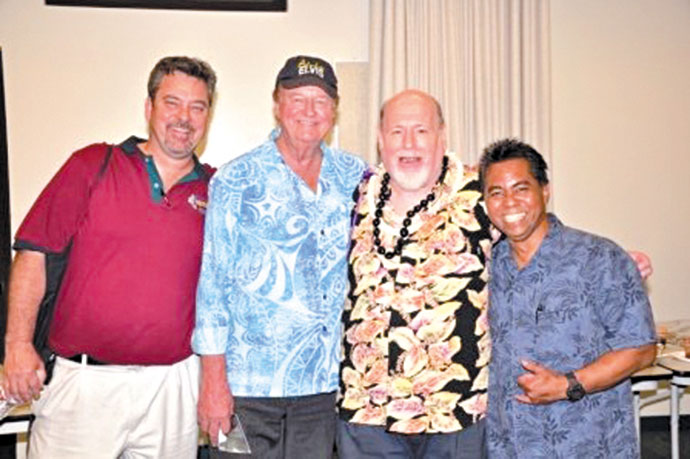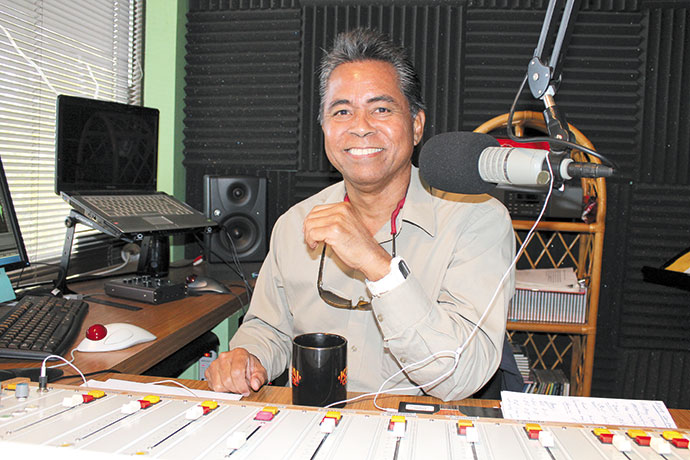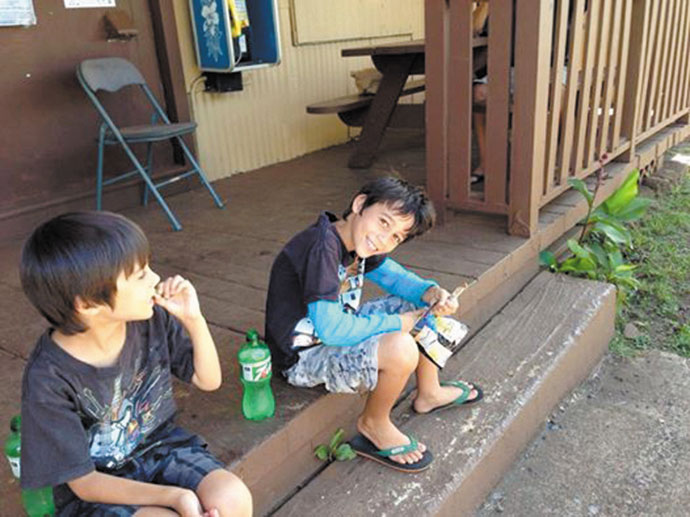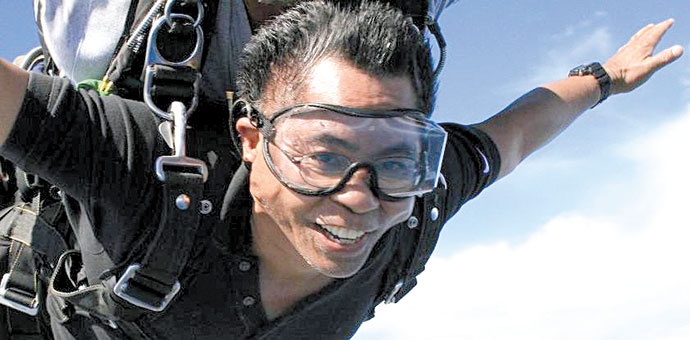Ed Kanoi has pipes
Pipes, among radio people, is a great compliment. And Ed Kanoi has pipes — not just a great voice, but an unmistakable voice. You’ve probably heard him on the radio as a disc jockey for the Rooster Country 99.9 FM morning show, or “Lunch Time Luau” on Island Radio 98.9 FM. If you haven’t, then you’ve likely heard one of the many commercials he’s recorded for the local stations he manages at H Hawaii Media– Island Radio, Rooster Country, Jamz, 98.1 FM, K-Rock, 97.3 FM and Kauai’s Visitor Radio 107.9 FM.
But such is the life of a professional in the radio business: Kanoi soon will bid the island farewell and head to Maui to host a morning show on KISS-FM. Though his time on the Garden Isle was short, it is obvious he made a significant mark.
The single father of two boys, Elijah and Ezekiel Villaruel, started his “more than full-time job” on Kauai in 2013.
“It’s been a tough gig,” he admits on a recent holiday he spent working while everyone else was at the beach.
He never lets anything slow him down, including a disability that requires him to use crutches — a result of suffering from polio as a child in the 1950s.
“The polio really pushed me to do things they said I couldn’t do,” says Kanoi.
The Oahu native has jumped out of air-planes, surfed waves and even hiked Kalalau Trail to Hanakoa Valley three times.
“I’m always trying to challenge myself,” he explains.
The only time he ever considered himself disabled was while living on Hawaii island, where he jokes that the “parking lots are huge” and he “broke down” to get a disability decal for his car.
His gung-ho attitude has helped him advance his career to become one of the state’s most recognizable voices.
Before graduating from Waipahu High School in 1972, he landed a job at KKUA 690 AM as a record librarian, filing the 45s used by disc jockeys. He calls this
the “old days” before computers played music, when disc jockeys were on-air 24/7 and people were still listening to their portable radios at the beach.
His affinity for music is thanks to his father, Edward Villaruel, an extraordinary saxophone player. That, and radio being “a big deal” at the time, was the winning combination Kanoi needed to plunge into his new career.
“When I discovered radio, I was like, ‘Oh, cool,’ it has to do with music and I could still get paid for being around music,” he explains.
Kanoi got his start by bringing lunch to DJs and hanging out with them in the studio, soaking in everything. Several years later, he finally got his first chance to be on the air during weekends, and eventually moved up to the midnight to 6 a.m. shift.
“Nobody would hear you, really, and that’s how you got to learn your craft,” he says.

Ed Kanoi with Bart Burford of Salem Media of Hawaii and two of his radio ‘heros,’ Tom Moffatt and Ron Jacobs.
Still, it took time to hone in.
“I was really young and nervous,” he says. He recalls being on-air when an accident happened on Oahu’s Kalanianaole Highway.
“I was trying to talk about the accident and I couldn’t get through the highway’s name. I tried about three or four times, and I stopped and said, ‘You know, the road in front of Kalani High School’ and left it at that,” he laughs.
Practice made perfect, though, and Kanoi began to DJ during “prime time” slots in the morning and afternoon. He spent time at different stations around Oahu but soon found his way to Kauai. In the early 1980s, he moved to the Garden Isle, where his mother, Virginia Bonilla, had grown up. She died when he was only 5. One of his most memorable experiences on Kauai was while working at KONG radio station as the afternoon DJ and program director when Hurricane Iniki struck the island.
“And that just opened up a whole new world for KONG,” he says.
Instead of focusing only on top 40 hits, the station started mixing in important information to share with listeners; something it continues to this day with DJs such as Ron Wiley, who remembers working with Kanoi in the early ’90s. He recalls Kanoi’s “Afternoon Luau” show with comedian Ed Ka‘ahea, which was initiated after the hurricane to help lift people’s spirits.
“He and Ed Ka‘ahea had a good, fun radio show,” says Wiley. “They were a great combination.”
Their first broadcast was at a golf event in Poipu, where Ka‘ahea reported from the course as if he was inside each of the holes.
“My boss loved it, and then that became the birth of ‘Afternoon Luau,’ which got us into a lot of trouble and a lot of fun,” says Kanoi.
Today, he continues to have fun with his job, even if it does keep him island hopping.
“I think it’s making people happy,” he says about the most rewarding part of his profession. “I still get a kick out of talking to people on the phone.”
And even as the media’s landscape continues to change, he’s not worried about radio’s longevity.
“I don’t think radio will ever die,” he says. “It’s just changing.”
And Kanoi is excited to be along for the ride.







